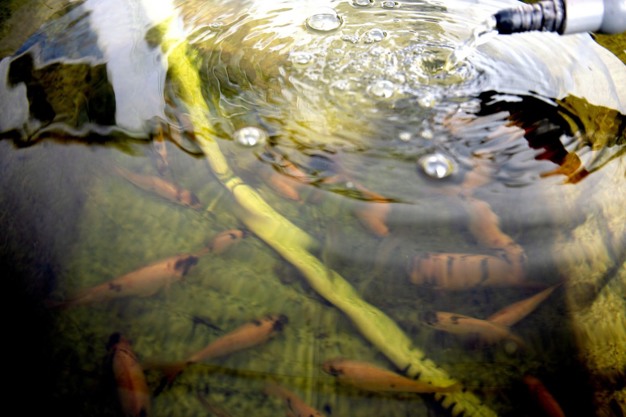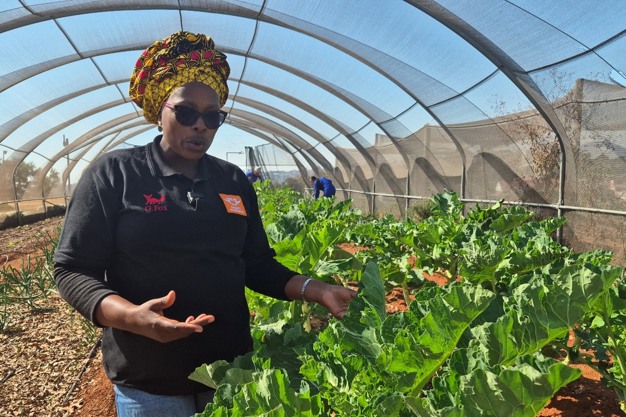The University of Johannesburg's Centre for Ecological Intelligence (CEI) in South Africa is tackling global challenges by addressing the United Nations' Sustainable Development Goals (SDGs) through food system projects at their Research, Training and Food Systems Hub, located at the UJ Bunting Road Campus. These projects are helping communities while equipping students with practical skills for a sustainable future.
"Our projects focus on teaching people how to produce their own food, starting with UJ and expanding to urban and peri-urban communities, maximising available open spaces," explained Project Manager Godfrey Ndamane.
The CEI's mission aligns with SDG 1 (No Poverty), SDG 2 (Zero Hunger), and SDG 17 (Partnerships). Ndamane emphasised their commitment to sustainable job creation: "By introducing these projects in communities, we are creating employment opportunities, empowering individuals through food production."
Integrated food systems and experiential learning
The CEI's Hub has implemented integrated food systems across Gauteng, the Eastern Cape, and Mpumalanga, acting as living laboratories for both undergraduate and postgraduate students from various disciplines. The curriculum covers agroecology, aquaponics, hydroponics, aquaculture, and the interconnection between water, energy, and food systems.
Initially focused on aquaponics—a farming method combining hydroponics and aquaculture—the Hub has since expanded to open-field farming and seedling propagation. "We realised the high costs of organic seedlings and decided to produce our own for our projects," added Ndamane.
The Centre's approach includes the development of a custom greenhouse exploring drip hydroponics and the creation of a vermicomposting enterprise that produces nutrient-rich compost and worm tea. These initiatives enable proof of concept for community projects, ensuring their success. "Before introducing projects to communities, we ensure that they are impactful and effective, contributing to UJ's goal of societal impact," Ndamane said.
Nurturing future agriculturists and farmers
The CEI also serves as a training ground for future agriculturists. Malebo Rakgoale, a crop science student from the Tshwane University of Technology, leads the nursery at the Hub as part of her experiential learning. "We produce a variety of seedlings and microgreens, such as rocket, mustard, cabbage, and parsley," Rakgoale explained. Along with other students, she is gaining hands-on experience in sustainable farming practices.
Site Agri Manager Mapenane Kgatitsoe, an agronomist, oversees the agricultural activities at CEI, ensuring that production remains environmentally responsible. "We are promoting food security in a sustainable way, using resources that will still be available in the next 20 years," she stated. The Hub aims to eliminate synthetic products such as fertilisers and pesticides, focusing instead on organic methods and natural resources.
Site Agri Manager Mapenane Kgatitsoe
Kgatitsoe added that education is key to their mission: "It's not just about training but also understanding the social and cultural contexts of the people we work with. We encourage creativity in using available land for planting, no matter how limited."
Community engagement and education
CEI actively engages with schools and communities, helping them establish food gardens and providing starter packs that include seedlings and compost. "We want to teach children to grow food at home and encourage their parents to do the same," Kgatitsoe explained, emphasising that farming requires perseverance.
Kgatitsoe envisions a future where people only buy from shops what they cannot grow themselves: "The Hub is open to everyone, and we encourage visitors to see our work first-hand."
To truly understand CEI's innovative work, Ndamane invites students and visitors to explore the Hub. "All our projects are aimed at sustainability," he said, noting the monthly Urban Food Fridays volunteer programme and the upcoming pop-up vegetable stalls at UJ.
Source: University of Johannesburg
